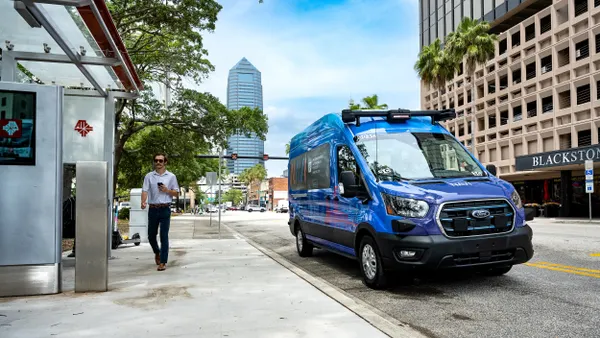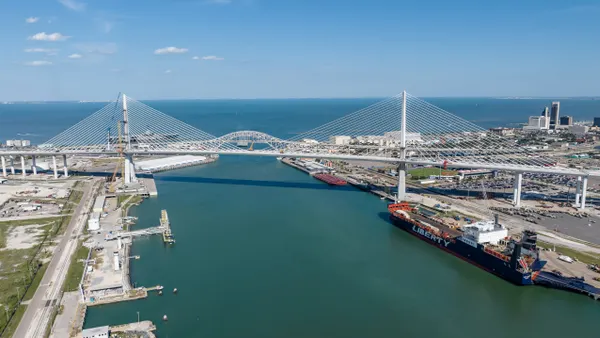Dive Brief:
- Last Friday, Transport for London (TfL) announced it will strip Uber of its license to operate in the city, citing a "lack of corporate responsibility," including concerns over how the ride-sharing company reported criminal offenses.
- In response, Uber quickly launched a petition called "Save Your Uber." As reported by The Guardian, Uber is planning to appeal TfL's decision, and can continue to operate in the city while the appeals process goes on.
- TfL also cited concerns that it had with Uber's use of Greyball, a software that could be used to block regulatory bodies from getting full access to the app, preventing city officials from performing law enforcement or regulatory duties. Uber's license expires Sept. 30 and TfL has said it will not offer further comment pending any appeal of the decision. However, London Mayor Sadiq Khan wrote an opinion piece for The Guardian, saying that London has to choose safety over Uber's convenience.
Dive Insight:
London isn't the only location to restrict Uber from operating. Entire countries in Europe, including Italy, Hungary and Denmark have banned Uber, citing regulatory and corporate practices, according to Condé Nast Traveler. London is, however, among the largest cities to have banned Uber.
Khan has shown a lot of interest in making London a smart city — declaring plans for zero waste and for zero emissions from traffic. The zero emissions plan called for taxis and other ride hailing services, including Uber, to be zero emission "capable" by 2033. Uber had recently announced plans to make all its vehicles in its London fleet electric or hybrid by 2019; now, however, it is unclear if the ride-sharing service will even have a presence in the English capital in the next few years.
As Uber and London navigate the appeals process, the city will have to be careful, especially if it wants to live up to Khan's goal of becoming the world's smartest city. Many cities are focusing on mobility as a way to be smarter and city thought leaders are increasingly seeing mobility as an important aspect of keeping cities connected. According to Uber, 3.5 million people in London use the service. Banning the ride-sharing service could cause a major disruption to the lives of many Londoners, so the city will need to ensure that there are other transit options in place for residents to turn to if Uber's appeal is unsuccessful.










